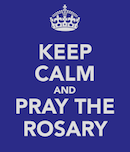Two readings to understand the present time. The former from the Catechism
of the Catholic Church (CCC), the latter from a poem by T. S. Eliot (Chorus VI from “The Rock”).
675 Before Christ's second coming the Church must pass through a final trial that will shake the faith of many believers. 573 The persecution that accompanies her pilgrimage on earth 574 will unveil the «mystery of iniquity» in the form of a religious deception offering men an apparent solution to their problems at the price of apostasy from the truth. The supreme religious deception is that of the Antichrist, a pseudo-messianism by which man glorifies himself in place of God and of his Messiah come in the flesh. 575
676 The Antichrist's deception already begins to take shape in the world every time the claim is made to realize within history that messianic hope which can only be realized beyond history through the eschatological judgement. The Church has rejected even modified forms of this falsification of the kingdom to come under the name of millenarianism, 576 especially the «intrinsically perverse» political form of a secular messianism. 577
These points are mostly derived from the Apocalypse of St. John and, as such, they should be carefully interpreted, without exclusively thinking of the end of time: in fact, paragraph 676 recalls us that the Apocalypse also talks of events that recur many times throughout the history.

Albrecht Dürer, “The Dragon with the Seven Heads” (ca. 1496-1498)
Staatliche Kunsthalle, Karlsruhe.
Image courtesy of Wikipedia.
Now, this is what Eliot wrote:
Why should men love the Church? Why should they love her laws?
She tells them of Life and Death, and of all that they would forget.
She is tender where they would be hard, and hard where they like to be soft.
She tells them of Evil and Sin, and other unpleasant facts.
They constantly try to escape
From the darkness outside and within
By dreaming of systems so perfect that no one will need to be good.
But the man that is will shadow
The man that pretends to be.
 RSS 2.0 Blog feed
RSS 2.0 Blog feed

